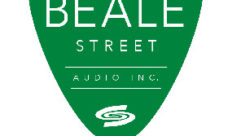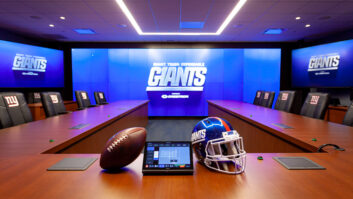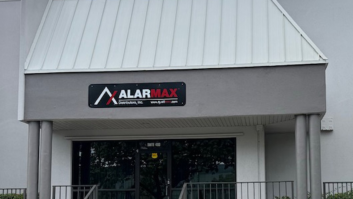Search Engine Marketing: Part 2
Paid search engines can help generate leads and boost your bottom line.
Pay-per-click adsPay-to-index adsWhere to advertise
WHILE MANY pro AV marketers work hard to optimize their websites, it can often be an uncertain process. The search engines don’t publish the criteria they use to rank the sites listed on their results pages, and the criteria frequently change. For AV pros who have small sites (10 to 100 pages), it can be especially difficult.
However, there are alternatives to free listings, such as pay-per-click ads and pay-to-index listings. “The impact of paid listings has been to the point where they’re now absolutely required in order to be successful on the Internet,” says Walt Dibbern, partner at search engine optimization (SEO) firm Dibbern and Dibbern in Des Plaines, IL.
Pay-per-click (PPC) is a fairly simple concept. You select a keyword, write a small ad, and then bid against others for how highly your ad is listed in the “sponsored links” section of the search results. You pay only when someone clicks on your listing and is linked to your website. According to a recent survey by Watertown, MA-based SEO iProspect, about 40 percent of search engine click-throughs come from PPC listings.
If you’re considering a PPC campaign, there are some important factors to consider. First, you can be outbid at any time. And if you find yourself in a bidding war, the cost of a high position can escalate quickly. Prices typically range from a minimum of 10 cents per click to $5 or more.
You also don’t need to be number one to get good results. “You can be position three or five and still be above the fold on most terms,” says Terri Spence, CEO of optimization firm W3PR of Oak Park, CA.
And you don’t always need the most sought-after (and thus most expensive) keywords. As with free listings, it’s important to choose the right keywords and write a concise and informative ad. “A term like ‘projector’ will be very expensive,” Spence says, because so many box houses and discounters bid on it. “But if you’re an AV company that specializes in house of worship, then you want to be much more specific with your terms and the description that comes up. For example, the term ‘church sound system’ was searched 961 times through the Overture network in November.”
The idea is to get legitimate leads, Spence says. “A house of worship specialist doesn’t want clicks from just anyone looking for a projector, but from worship leaders who are looking to purchase a system,” she says.
You can also limit your expenditures to a budget you can afford. In addition to providing tools to help predict what each bid will cost, search engines such as Google and Overture (Yahoo’s sales arm) allow you to set a maximum daily expenditure. The downside is that an under-funded ad doesn’t run consistently — both search engines will turn your ad on and off throughout the day to limit click-throughs and avoid exceeding your budget.
Google and Yahoo/Overture offer another option that can help dealers and integrators with limited geographical reach. “I have a customer in Cincinnati who only wants to reach the Cincinnati area,” Spence says. “I can now specify that these are the only places I want these listings to appear, and they know where to display them via the hub address of the IP service provider.”
However, while localizing an ad won’t reduce its per-click cost or the amount you have to bid for a given position, it can help drastically reduce overall costs. If you limit your campaign to Cincinnati, users outside that area won’t see your ad or be able to click on it, and thus your money won’t be wasted.
The last piece of the search puzzle is relatively new and currently available only from Yahoo/Overture. The site offers two pay-to-index hybrid programs that combine the features of pay-per-click and free search engines. For Overture’s Site Match, you submit a list of pages for the search engine spider, which indexes your content and assigns a ranking for each keyword. Your listing then appears with the freebie listings, although it’s actually a paid listing.
To participate, you must pay a fee ranging from $49 for the first page you submit to $10 per page after the tenth, and then 15 to 30 cents per click, depending on your industry category. Dibbern says what you get for that cost is immediate and repeated review of your site. “They don’t change how they evaluate you, but you can keep tweaking your pages until you achieve the rankings you want,” he says.
Site Match Xchange is Overture’s program for large sites that want to submit 1,000 or more URLs at a time, along with an XML feed that includes the title tag, meta-description, and a list of keywords for each URL. “They carefully review each URL and its associated tags to make sure the listings are going to comply with their rules, so they’re not going to be spammed,” Spence says.
Its costs are also lower: there’s no charge per page and the fees are 10 to 30 cents per click. Another advantage of Site Match Xchange is that it allows all-Flash websites and many dynamically generated sites to be included in the search engines. “I have a client whose entire site is Flash based,” Spence says. “It was impossible for me to get those pages listed, but now every single one comes up well for the important terms.”
Currently Spence and Dibbern focus their clients on Google and Yahoo/Overture. “You can easily hit about 90 percent of what you want with just those two, and they’re in such hot competition they’re going back and forth on who can offer the best features and reach,” Spence says.
However, Dibbern says AV pros should also keep an eye on MSN Search. “Microsoft has been a mixed bag, but they debuted an all-new engine in beta form in October,” he says. “It has a larger database than either Google or Yahoo. Knowing Microsoft, they will probably be a big player before long.”
Sound complicated? If you’re not familiar with this process, partnering with an optimization firm can help. An SEO firm can set up the program and, for a monthly fee, maintain it, keep track of your bids, your budget, and even changes at the search engines. “It really is something you have to pay attention to regularly,” Spence says. “And if it’s not your core business, you’re better off outsourcing.”
What kind of return on investment can you expect from a search campaign? “You can calculate these numbers, but it’s rare that someone will track the necessary data,” Spence says. “They’ll tell you, ‘I’m getting a whole lot more phone calls or a whole lot more e-mail.’”
For example, Spence says one of her clients ran his own limited PPC campaign and tracked his cost at $75 per lead. “I took over his program a year ago and now each lead is costing him $4.15.”
Typically, a well-managed, adequately funded campaign can bring in dozens to hundreds of leads per month. If they’re followed up on conscientiously, that can make an enormous difference in your business. Brian Maksa, vice president of Lisle, IL-based AV integrator Media Resources, has been running a PPC campaign since this spring. He says he’s currently receiving about 40 to 50 emails each month from potential customers who have visited his website. “Our last four or five projects have come through this process,” he says.
Don Kreski is an independent marketing consultant with more than 24 years of experience in the pro AV industry. He holds an MBA in marketing and finance and can be reached at [email protected].







